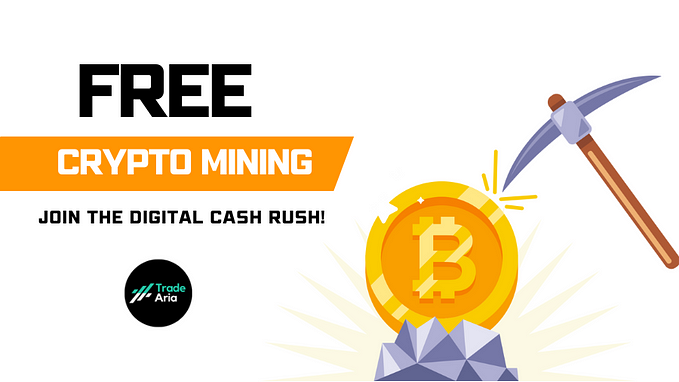Rochelle Porter: 5 Things I Wish Someone Told Me Before I Became A Founder

If you don’t end up doing what you love or are called to do, you’re doing a disservice to yourself and the impact you could have on the world.
As part of our interview series called “5 Things I Wish Someone Told Me Before I Became A Founder”, I had the pleasure of interviewing Rochelle Porter.
Rochelle Porter is the founder and creative director of Rochelle Porter Design, a vibrant, print-focused lifestyle brand based in Atlanta that specializes in sustainable home decor, size-inclusive athleisure, and accessories.
Thank you so much for joining us in this interview series! Can you tell us a story about what brought you to this specific career path?
It’s a funny story — I actually don’t have a formal art background and didn’t have an initial desire to go into art design or fashion professionally. I just always loved to doodle and draw on things. I come from a traditional Caribbean immigrant family where my path was to become a lawyer, doctor, or engineer. After finishing college with a major in English and History, I worked as a computer programmer at a prestigious investment bank for a year and a half, and I didn’t enjoy it. As a creative outlet, I took a course at the Fashion Institute of Technology; it was stressed that unethical practices and issues of exploitation were a major part of being profitable in the mainstream fashion industry and that was not a space I wanted to be part of.
Over a decade later, as I continued to take on unfulfilling corporate jobs, I knew I wanted to do something more meaningful. I took another art course and it really opened me up to my passion for design and how I can tackle some of the issues plaguing the fashion industry. So I took the leap to start Rochelle Porter Design with the mission of transforming the way consumer goods were made. Now I can’t imagine doing anything else. It’s a testament to if something is in you, it has to come out of you. If you don’t end up doing what you love or are called to do, you’re doing a disservice to yourself and the impact you could have on the world.
Can you tell us a story about the hard times that you faced when you first started your journey?
The main challenge I had was learning how to start and run a business — I didn’t know what I was doing! I never had entrepreneurial aspirations before, so I had to build the plane as I was flying it. I funded RPD with my personal capital, and there were many moments when money was tight.
In the beginning of 2020 — before the global onset of COVID — it was especially difficult because I had just left my corporate job, which I had been in for seven years. For the first couple of months of the year, my business stalled. I had almost no sales. I seriously considered cancelling the home décor line to save cash. Once the pandemic began, however, there was a growing trend of people starting to redecorate their homes during quarantine and wanting pillows and other home goods! It was a blessing in disguise for me and things started to take off. I had to cut up scrap fabric to keep masks in stock. And then since everyone was either not working or working remotely, they wore leggings and sweatpants.
Where did you get the drive to continue even though things were so hard?
I think it is innate. The obstacles don’t matter when you are walking in your purpose. When you are doing what you are called to do, you are motivated to continue pursuing it. I know that I am walking in my purpose on Earth.
So, how are things going today? How did grit and resilience lead to your eventual success?
You know the saying ,“It takes 10 years to be an overnight success”? I’m not quite at the ten-year mark yet, but it’s been a long road already and I’m grateful for all of it. If I didn’t have those unfulfilling jobs, I wouldn’t have had the finances to start my company. Since the birth of Rochelle Porter Design, I haven’t had investors or raised any funding, which has allowed me to have control of how I run my company. There’s also something to be said about getting up every day and building the character you need to your passion successful. I’ve accomplished some amazing things in my time as a designer — I’ve collaborated with West Elm, been recognized by Google and H&M, and every second has been worth it.
What do you think makes your company stand out? Can you share a story?
Every artist has that je ne sais quoi or signature that you can’t get anywhere else. The DNA of my business is inspired by my unique background, travels, and eclectic view of the world. I also think my outlook on reshaping the way global manufacturing works sets me apart — I’m not just making beautiful designs, I want to see more equity in the world. I want the people who make our clothes to be respected; I want the tools that we use to be friendlier to humans and the environment; and I want to create opportunities for people to explore their potential. That is the purpose of my brand.
Which tips would you recommend to your colleagues in your industry to help them to thrive and not “burn out”?
First and foremost, take time for yourself; there will always be work that needs to be done, so be kind to yourself — you don’t get a prize for burnout. Second, delegate more things! This is something I actually struggle with, but am learning to do more. Do not try to be the “jack of all trades” because you will deplete yourself. There are 2–3 things in my business that I absolutely have to do myself, the rest I enlist help for — from accounting to marketing. It is okay to delegate tasks to others while you focus on the things you are skilled and called to do.
None of us are able to achieve success without some help along the way. Is there a particular person or community you are grateful for that helped get you to where you are? Can you share a story?
There was a program I was involved in 4–5 years ago with Emory University called Start:ME. It was an accelerator program that taught entrepreneurs and local businesses basic business skills like how to read a balance sheet, write a business plan, do a pitch, and so much more. It turned out to be one of the most valuable experiences I’ve been a part of. The community of supporters I built from this program has been instrumental to my personal and professional growth — they have introduced me to retailers, filled their homes with my products, and showed up at my events. I am truly grateful to them.
How have you used your success to bring goodness to the world?
Like I’ve mentioned previously, the mission of my brand is to prove that consumer goods can manufactured responsibly without losing quality. For my activewear line, my hand-designed patterns are printed on-demand with sustainably sourced materials to eliminate waste and embrace a clean supply chain.
What are your “5 things I wish someone told me before I started leading my company” and why. Please share a story or example for each.
- Be ready for the long haul, success may take longer than you anticipate. Entrepreneurship is a long game. I quickly learned that my business required full attention if I want to reach the level of success I imagined. Even once you put in lots of hours and money, you have to be willing to wait it out to see the payoff.
- Lean on your instincts. While it is crucial to understand the basics of your business and industry, it is your inner drive that’s going to take you where you need to go. It is very easy to be swayed by experts and people with more experience; but while they have knowledge to be gleaned, only you know the heart and vision of your company, so never lose that.
- Be flexible, you will need to pivot. I haven’t met any successful entrepreneur who hasn’t had to change course at some point. For example, I never thought I’d need to make face masks, but when COVID-19 hit, I had to adjust my business. My face masks are what ended up putting my brand on the map and introducing me to a broader audience, which led to other opportunities. So I would say, don’t get too used to anything.
- Know your core values and stick to them. As your business grows and you become more successful, you will be offered more deals, partnerships, and opportunities. If you don’t have clearly defined core values on what your business stands for, you will accept anything that looks good and that can end up compromising your brand.
- Find your community and build your professional support system. You need to find people who are as bold and courageous as you. I am part a couple of groups of other entrepreneurs from across different fields and we support each other and share the journey of entrepreneurship with one another. We have real conversations like, “I don’t know how I’m going to make payroll this week” or “My products are stuck in a shipping container on the ocean.” Sometimes your family and friends don’t always understand what you’re going through or how to best support you, so it is encouraging to have a community of individuals whom you can commiserate with but who will also help you find solutions and let you know it’s going to be okay.
Can you share a few ideas or stories from your experience about how to successfully ride the emotional highs & lows of being a founder”?
Remember your why and where you started. It’s so easy to get bogged down in the day-to-day of being a founder. There’s never a dull moment. If I didn’t have a greater purpose, I could go back to a traditional job with benefits, a consistent payroll and employees. However, I know that I’m destined for more and there’s a reason I’m making this sacrifice. I hope that it’s bigger than me and truly ends up impacting the world. My community is great at reminding me to celebrate my wins — big and small. They remind me that overcoming the perils of being a founder is worth being celebrated!
You are a person of great influence. If you could start a movement that would bring the most amount of good to the most amount of people, what would that be? You never know what your idea can trigger.
The thing that bothers me most in the world is untapped potential. As someone who comes from a developing country, I’ve seen so many people who could change the world if they were given the right opportunity. If I could do one thing, it would be creating a mechanism to provide opportunities to those people. I try do this as much as I can in my business.
How can our readers further follow your work online?
Please check out my website www.rochelleporter.com to see some of my latest designs and products. You can also follow me on Instagram at @roporterdesign and connect with me on LinkedIn at https://www.linkedin.com/in/rochelleporter/.
This was very inspiring. Thank you so much for joining us!











